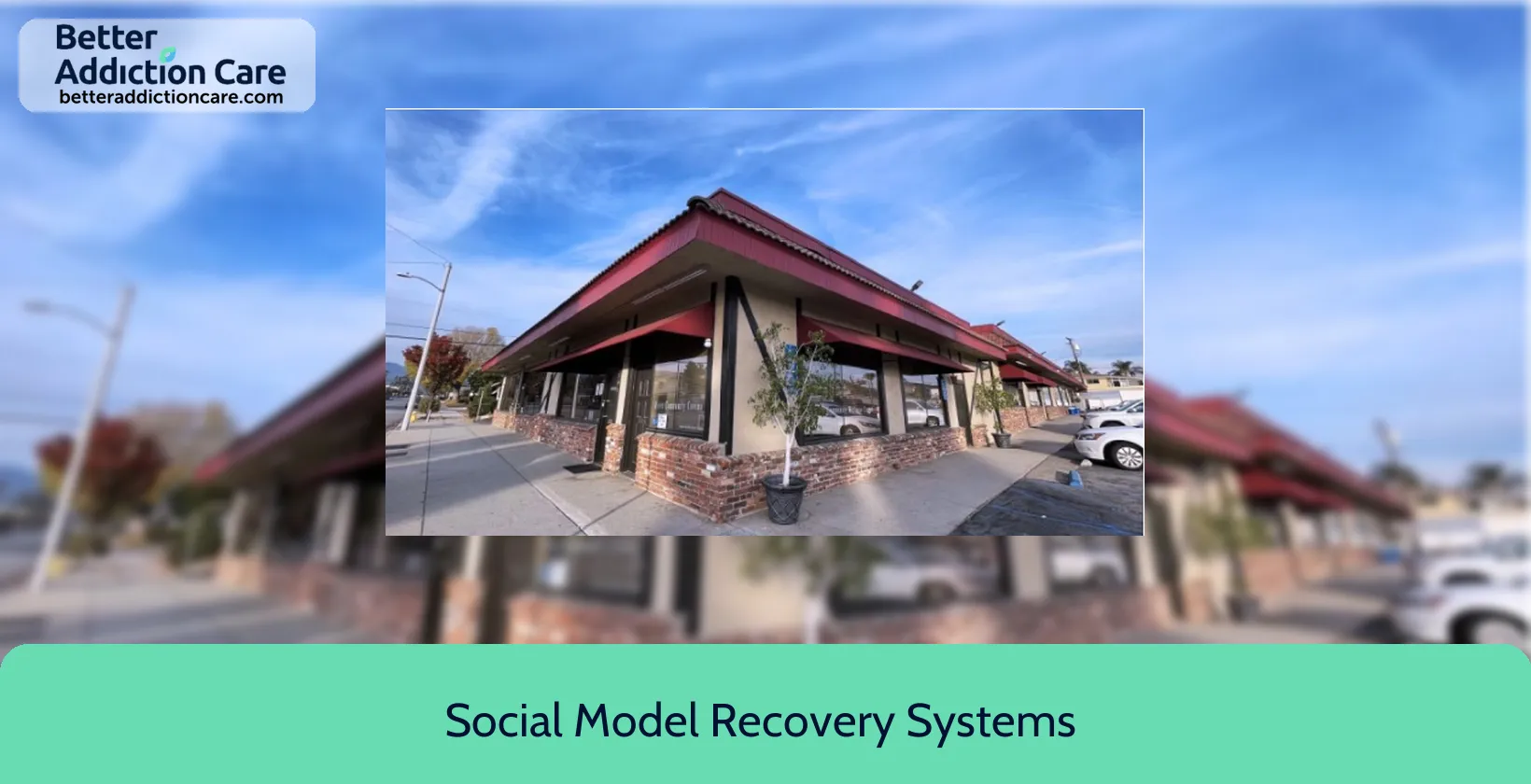Social Model Recovery Systems - River Community
Overview
Through its all-inclusive treatment programs, Social Model Recovery Systems, Inc., a nonprofit organization, addresses mental health issues and drug use disorders. One of its locations, River Community Covina in Covina, California, offers individuals with dual diagnosis specialized treatment. This clinic serves people with co-occurring mental health illnesses such as mania, depression, schizophrenia, mood disorders, and anxiety disorders in addition to drug abuse problems.
The therapy strategy at River Community Covina is designed to be adaptable and sensitive to the demands of each patient. For those who continue to play significant roles in their society, the half day treatment program is a well-rounded choice. Participants in this program may attend job, school, or spend time with their families while still getting organized evening assistance for their recovery. With a flexible timetable that accommodates life's duties, it offers a thorough approach to dealing with particular problems without fully abandoning daily obligations.
Six days a week, daylong therapy sessions are offered as part of the outpatient services for those who choose a more intense approach. These programs provide an organized setting with social and recreational activities, individual and group counseling, and tailored therapeutic treatments. For those who need ongoing help and direction to manage their mental health and drug use issues, this arrangement is perfect.
The focus placed by Social Model Recovery Systems on a social model approach—in which recovery is seen as a group endeavor—is one of its distinctive features. The group creates a friendly and encouraging atmosphere where employees and participants work together to create a strong community. This group dynamic strengthens each person's road to recovery by enabling them to gain from mutual support, experiences that they have in common, and the group's collective knowledge. Each participant's responsibility goes beyond their own recovery process since they are urged to set a good example for others and improve the wellbeing of those around them.
Social Model Recovery Systems' goal goes beyond its treatment programs to the heart of Los Angeles, namely in the Central City East neighborhood, sometimes referred to as Skid Row. In order to include the most vulnerable groups, the organization runs a community-based alcohol and drug prevention program here. By pushing for more extensive social change and providing immediate assistance to people in need, the program aims to address structural problems and socioeconomic inequalities that have an influence on the community's health and safety.
Through its cutting-edge approach to addiction and mental health recovery, Social Model Recovery Systems has helped thousands of people alter their lives since its founding in 1986. The organization is a pillar of the community, offering hope and a way ahead to those facing the most difficult situations in life because of its dedication to fostering a secure, compassionate, and welcoming atmosphere.
Licensed as a 501(c)3 charity in California, Social Model Recovery Systems offers services at many sites around Los Angeles County. It has gained recognition for its evidence-based procedures and all-encompassing healing techniques, which guarantee that every patient gets the best treatment possible that is customized to their particular circumstances. The organization's many glowing testimonials from past clients, who highlight the helpful environment, devoted personnel, and successful programs that aided in their path toward long-lasting recovery, further demonstrate its dedication to quality and honesty.
Social Model Recovery Systems - River Community at a Glance
Payment Options
- Medicaid
- Private health insurance
- Cash or self-payment
- Payment assistance (check with facility for details)
- Sliding fee scale (fee is based on income and other factors)
Assessments
- Comprehensive mental health assessment
- Comprehensive substance use assessment
Age Groups
- Adults
- Young adults
- Adolescents
- Seniors
Operation
- Private for-profit organization
Highlights About Social Model Recovery Systems - River Community
6.56/10
With an overall rating of 6.56/10, this facility has following balanced range of services. Alcohol Rehabilitation: 8.00/10, Drug Rehab and Detox: 6.00/10, Insurance and Payments: 6.00/10, Treatment Options: 6.24/10.-
Alcohol Rehabilitation 8.00
-
Treatment Options 6.24
-
Drug Rehab and Detox 6.00
-
Insurance and Payments 6.00
Treatment At Social Model Recovery Systems - River Community
Treatment Conditions
- Mental health treatment
- Alcoholism
- Opioid Addiction
- Substance use treatment
- Co-occurring Disorders
Care Levels
- Intensive outpatient treatment
- Detoxification
- Outpatient
- Hospital inpatient/24-hour hospital inpatient
- Hospital inpatient detoxification
Treatment Modalities
- Group counseling
- Trauma-related counseling
- Individual psychotherapy
Ancillary Services
Languages
- Spanish
Special Programs
- Clients who have experienced trauma

Additional Locations
Contact Information
Read our Most Recent Article About Drug Addiction
DISCLAIMER: The facility name, logo and brand are the property and registered trademarks of Social Model Recovery Systems - River Community, and are being used for identification and informational purposes only. Use of these names, logos and brands shall not imply endorsement. BetterAddictionCare.com is not affiliated with or sponsored by Social Model Recovery Systems - River Community.










